Sudden power outages are at times a major nuisance, interrupting your life in an instant, taking away the lights, heating or cooling, and charging of devices, among others. For many, backup generators offer peace of mind, also providing the assurance of being ever-ready for the unexpected. Or is paying for a backup generator worth it? The blog tries to analyze these aspects and reasons that speak for owning a generator and those that might discourage you from doing so, letting you make an informed decision for your home and lifestyle. Are you mulling over an impending life of frequent outages, or just preparing for some very rare occasions? We will run through the must-knows. Find out if a backup generator is the closing step in your home’s preparedness.
Understanding Home Backup Generators
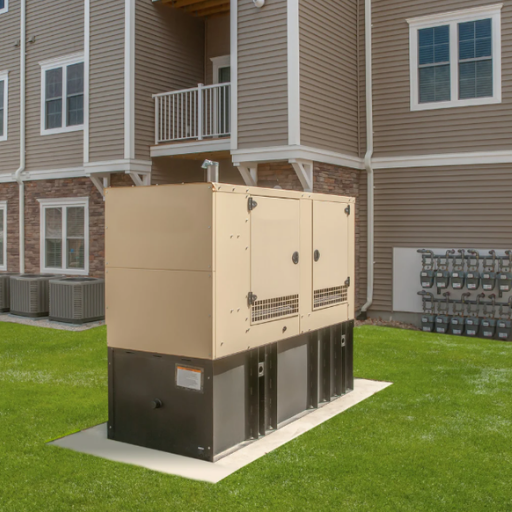
Backup generators can be a reliable solution to ensure power continuity during outages. They are designed to automatically supply electricity to your home when the main grid fails, so critical appliances like the refrigerator, lights, and perhaps medical equipment continue to work. Backup generators are also badly needed in areas prone to very frequent outages or extreme weather events. They come in all sizes and with different fuel options, including natural gas, propane, or diesel, ensuring there is a model suitable for your needs. With a backup generator, you protect your home, maintain comfort, and ensure safety during an emergency.
What is a Home Backup Generator?
Backup generators amid outages are reliable sources of electricity. Backup generators are usually installed outside the home, much like an air conditioner on the wall, with direct connections to the electrical system in the house. Home backup generators run on fuels such as natural gas, propane, and diesel, so power can be available in an uninterrupted state without manual refilling. Present-day backup generators can power anything from 7 kW to more than 20 kW to support the functioning of essential appliances and non-essential ones like heating and cooling, or even some houses, depending on the generator’s capacity.
Power outages have increased by some margin due to the increase in extreme weather events over the past two decades-the exact figure is 67%. Many homeowners are switching to a backup generation system as a solution to stop their power interruptions, to keep their households safe and running during an emergency. These systems create an automatic transfer switch that detects an interruption and orders the generator to power up within seconds in case of power restoration. Modern technology has implemented new features like remote monitoring, which allows the user to monitor performance and fuel level with a mobile app, guaranteeing a seamless operating mechanism.
Types of Home Generators: Portable vs. Whole Home
When choosing between portable and whole-home generators, one has to get acquainted with their features and uses. Portable generators are relatively small and are designed to allow one to move them around. These come in handy whenever there is a need for temporary power due to a short power outage or outdoor events like camping. Such generators usually have output power capacities ranging from 1,000 to 10,000 watts, enough to run things like refrigerators, lights, and minor electronic gadgets. An inexpensive option, they can cost anywhere between $500 and $2,500. However, they must be set up manually and refueled, often by using gasoline.
Whole home generators, also known as standby generators, are permanently installed and connected directly to a home’s electrical system. They possess panoptic power output, usually between 10,000 and 50,000 watts, allowing an entire house to be powered, including high electrical load appliances such as HVAC systems. These generators automatically power themselves up in case of an outage, thus offering uninterrupted service. Although the price tag is high, $5,000 up to $15,000 inclusive of installation, it uses reliable fuel sources like natural gas or propane that call for less involvement in maintenance. They are best suited for places prone to power outages happening frequently or for extended durations, thus providing reassurance and convenience.
Inverter Generators Explained
Inverter generators are compact and popular for their capacity to provide clean and stable power for sensitive electronics such as laptops and smartphones. Inverter models use special conversion technology from AC power into DC power and then convert DC power back into AC at a constant frequency and voltage, which reduces harmonic distortion and thus makes the electricity safer for delicate equipment.
These generators are also carte blanche for fuel-saving as fuel consumption depends on demand, since the generators adjust engine speeds accordingly and operate at less noise than conventional ones. For instance, at the lowest possible level, many inverter generators operate at noise levels ranging from 50 to 60 decibels, whereas the ambient noise in an American office stands at a similar level.
The typical range of inverter generators comprises 1,000-watt to 4,000-watt varieties, making them suitable, depending on wattage, for a small selection of appliances or electronic tools. With adequate large power output, the generators are apt for powering all basic household appliances for a short period during an outage, on camping excursions, and at outdoor venues. Prices generally range from $300 to $3,000, depending on power and other features such as parallel connectivity, where two units can be linked to run at larger wattage. This kind of generator offers endless possibilities as a reliable portable green power solution.
Evaluating the Cost of Home Generators
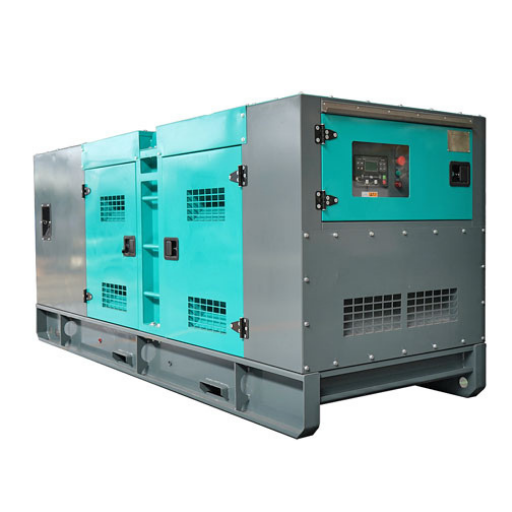
The cost of home generators depends on factors such as their power output, fuel type, and additional features. Small portable generators will start at around $300, providing just enough power for basic devices during short outages. Whole-house standby generators, on the other hand, may range in price from $2,000 to $15,000, with installation costs adding another $2,000 to $7,000. The higher price tag is because the generator is designed to power an entire home, usually starting automatically. When considering the cost, the chance to meet your needs, choosing fuel preference, and weighing long-term reliability will be important in picking the right option for your finances and requirements.
Initial Investment: Home Generator Cost
When considering a home generator purchase, several variables come into play in establishing the general cost of ownership. Portable generators charging lower prices usually take on a range of $300 to $1,200 with the wattage capacity and features, inverter being among them-for quieter operations. They are meant to offer a temporary assist record for vital machinery in the event of loss.
With standby generators offering seamless backup power to the owner, these generators are attached to the electrical generation system of the house and switch on automatically in the event of a blackout. Standby generators generally range in price between $2,000 and $15,000. For instance, a 7kW generator suitable for smaller homes can cost around $2,000, while a 24kW generator designed for larger homes can exceed $10,000.
In addition to these, installation charges come in varying between $2,000 and $7,000, including electrical work and maybe modifications to link up natural gas or propane. In cthe alculation of installation price, that includes such factors as the complexity of the setup, permitting requirements, and whether the generator resides at an inconveniently long distance from the fuel supply.
Maintenance costs should also be factored in. Maintenance takes some money annually, to the tune of $200 to $500. Fuel cost depends on where your generator is running and the duration of use; a 20kW generator running on natural gas, for instance, may cost $50 to $100 per day for long uses. By understanding these, one can determine what will power him best and will be within his budget.
Long-Term Financial Considerations
When investing in a generator, the financial implications for the full duration of its life are to be considered. On average, a standby generator lasts from 10 to 30 years, depending on how frequently it is used and under what maintenance regime. Adequate maintenance, such as oil changes, system check-ups, and prompt repairs of worn-out parts, can increase the life along with decreasing unforeseen expenses.
The fuel price constitutes an important parameter in medium-term running expenses. For instance, a diesel generator is typically more fuel-efficient than a gasoline generator, yet diesel prices will rise and fall over time to impact medium-term running costs further. A natural gas-fuelled generator would enjoy steady fuel charges, but must be backed by a reliable pipeline down to the generator site. Estimation of operational costs incurred per day under normal working loads could give clarity, ranging from $3 to $10 an hour, based on the fuel type and size of the generators.
In this regard, one has to weigh whether to invest in modern technology, such as inverter generators. They may prove costly at first, but such systems are quite energy-efficient and have longer life spans so that the initial higher costs may be recovered over time. Lastly, warranty coverage and service contracts should be worked into any final decision, as these may minimize repair charges and reassure the consumer in the long term. In short, these considerations must be balanced to yield a cost-effective and reliable power solution for many years.
Generator Maintenance Costs
In the issue of generator maintenance costs, I focus on routine servicing, including an oil change, filter replacement, and checking components like the battery or spark plugs. Regular maintenance helps keep more expensive repairs at bay and maintains its reliability. I, therefore, consider the possibility of having any worn-out parts and put money aside for that matter.
Benefits of Investing in a Backup Generator
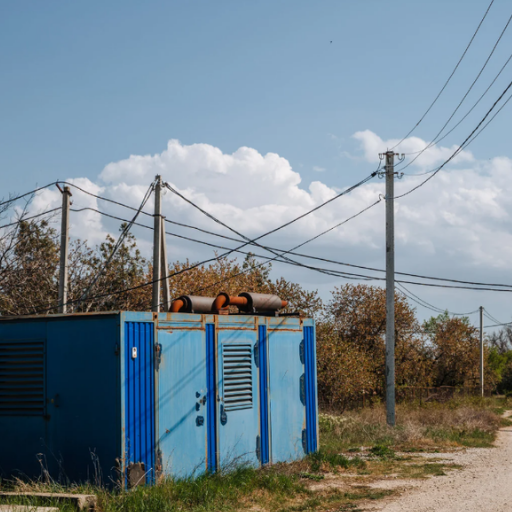
Many important benefits make the backup generator a better investment.
- Uninterrupted Power Supply: A generator keeps the electricity flowing during outages, thus keeping critical appliances and systems operational.
- Home Safety and Security: In instances where it powers security systems, lighting, and heating or cooling systems, it contributes to safety and comfort.
- Protection Against Financial Loss: Generators may keep the business operational and prevent revenue loss.
- Preservation of Perishable Goods: Refrigerators and freezers should continue to operate without interruption so that food does not spoil during long-term outages.
- Peace of Mind: Having a backup power system provides confidence in times of instability.
But getting it wrong about what being committed or intended to simply stick to the language structure of the original material would be due to stories of stewards of situations, as presented by the dice.
Ensuring Home Comfort During Outages
Ensuring comfort in the house during a power outage is particularly necessary for safety and convenience. Modern backup generators present an effective solution for supplying power to essential appliances and systems seamlessly. For example, newer models can operate HVAC systems that require ample power, making certain that heating or cooling does not stop, regardless of the weather outside. A study showed that a generator of acceptable size can cover noise-of-lightning, or 70-90% of the electrical needs of the average household, such as lighting, refrigeration, and communication equipment. Also, many homeowners now use systems with an automatic transfer switch that detects an outage and then switches power back on within seconds. Doing so helps to reduce interruptions and ensures comfortable living even through longer power cuts. Therefore, a good investment is forming a backup generator that meets the precise needs of a household, which will lead to resilience and peace of mind.
Protect Your Home and Appliances
Some considerations, data points, and technical details concerning your home’s security and appliances during outage scenarios must be considered to warrant their protection and proper functioning. Some of the important details and considerations one must keep in mind in order to effectively secure the home are as follows:
- Surge Protection
-
- Unforeseen power surges can certainly damage delicate electronic parts.
- Use high-quality surge protectors rated for at least 1,000–2,000 joules.
- Automatic Voltage Regulation (AVR)
-
- Ensures a stable voltage supply to connected devices.
- Use surge protectors that meet quality standards and have a rating of between 1,000 and 2,000 joules.
- Energy Output of Generators
-
- Calculate the power needs of essential systems like lighting, heating, and critical appliances.
- Typical requirements include:
-
- Refrigerator/Freezer: 600–1,200 watts
- Lighting (5–10 bulbs): 300–600 watts
- Sump Pump (1/2 HP): 1,050 watts
- HVAC System (Central AC): 3,500+ watts
- Fuel Efficiency
-
- Opt for generators offering long runtime per tank of fuel.
- Diesel and propane models often provide better efficiency over extended periods.
- Noise Levels
-
- Search for low-noise generators that work in residential areas (under 65 dB).
- Maintenance Requirements
-
- Please book oil changes, air filter exchanges, and spark plug tests at regular intervals.
If thoroughly taken care of, the arrangement will assure some home safety and the uninterrupted functioning of appliances during power outages.
Peace of Mind for Homeowners
Anyhow, investing in a good generator is a way to ensure that your home stays powered during blackouts. Choosing a model that fits your energy needs will always be great if you consider that it will be more efficient and a bit quieter, so it will cause minimum disruption. Regular servicing, especially for oil changes and air-filter replacements, will definitely extend the life of the generator and keep it working well. Do that, and your household will be protected while enjoying uninterrupted comfort and convenience.
Assessing Generator Worth for Your Needs
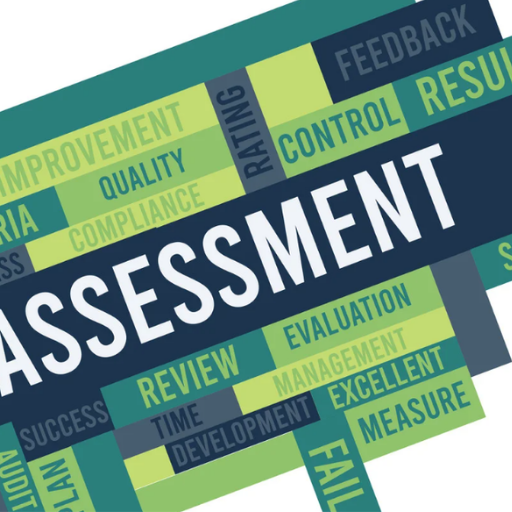
To ascertain whether or not a generator is worth the investment for your needs, one must consider three important factors:
- Frequency of Power Outages -For the case where outages are frequent or protracted, a generator will provide timely electricity and convenience.
- Power Requirements – You have to view the appliances and systems that you want to keep operating, such as a refrigerator, heating/cooling, or medical apparatuses, maybe, depending upon an outage, and get a generator to fit those needs.
- Budget – Ability to balance cash and generator features, including aspects of cost in the long run, such as fuel efficiency or durability.
On the basis of such considerations to evaluate, you can arrive at a conclusion on whether or not an electricity back-up system is feasible and worth it for your requirement.
Factors to Determine if a Generator is Worth the Investment
- Power Output – Modern generators come with different capacities in terms of wattage to accommodate a wide array of requirements. For instance, a standby generator to power a household would deliver somewhere between 7,000 to 20,000 watts of power, while portable generators deliver anywhere from 2,000 to 7,000 watts. Pinpointing which devices and systems need to be powered in the event of an outage can help plainly indicate wattage requirements.
- Fuel Type and Efficiency – engines in the generators can run on gasoline, diesel, propane, or natural gas. Gasoline and diesel are very convenient but pricey, especially with prolonged usage. Propane or natural gas, in contrast, sets less on fire with its cost and damage to nature. Researches indicate that propane generators last about 8-10 hours on a 20-pound tank, while big standby generators connected to natural gas could run endlessly during long outages.
- Cost of Ownership – Consider also the ongoing costs of owning a generator, such as installation, fuel, and maintenance. Generally, a portable generator costs about $500 to $2,500, and a standby generator, including installation, costs about $7,000 to $15,000. In the long run, heavy fuel-efficient reliability can easily compensate for these costs.
- Reliability During Emergencies – Places with frequent power outages, more so during storms or disasters, are where the generator would do the most good. Data shows that areas prone to hurricanes or blizzards would be very likely to experience outages lasting for a number of days; hence, the generator becomes an essential investment in comfort and safety there.
- Environmental Impact – Most of the time, newer generator models are marketed as low-emission generators-they cause fewer emissions to the air. This means choosing EPA-certified, CARB-compliant, or equivalent will lessen the environmental footprint and, at the same time, keep your generator in compliance with the law.
Such details should be taken into consideration to ensure that the most appropriate generator is selected to suit one’s requirements so as to shield a home during a power outage.
Backup Needs: How Often Will You Use It?
Your backup needs are paramount when choosing what kind of generator you require. In case someone chooses to live in an environment where power supply impediments are frequent, owing to severe weather conditions or an unpredictable power grid, one would require a rugged one with a high capacity. Recent energy reliability reports highlight that an area with frequent interruptions literally witnesses roughly 1.33 interruptions per customer in one year, with each lasting an average of 7.8 hours. In this sense, an automatic standby generator ensures power restoration to an area seamlessly, requiring no manual power intervention.
However, for homes in areas with infrequent outages, portable generators are wonderfully suitable. They cost less and can carry the load of sporadic usage, primarily to keep the basic appliances going for short periods. Comparisons of outage frequency against power requirements during an outage are bound to direct you toward the model that’s perfect to match your lifestyle: one of efficiency, reliability, and no added gaudiness.
Alternatives to a Home Generator
With home generators being the most popular backup power solutions, there are various alternatives worth pondering, catering to different types and budgets.
- Battery Backup Systems
Battery backup systems, sometimes called energy storage systems, are considered environmentally friendly and reliable power alternatives. These systems store electricity sourced from the grid or renewable sources such as solar panels. Modern options like lithium-ion batteries are small, lightweight, highly efficient, and require little maintenance. In a typical arrangement, a home battery system may provide some type of power backup to the home, ranging from a few hours to even one full day, depending on the energy demands of the house.
- Solar Power Systems
Solar panels with an inverter represent a solution wherein electricity is sustainably produced from the sun. The solar battery here solves the issue of power supply during outages. Current market trends indicate solar energy systems are becoming much more affordable, with installation costs per watt having seen a peak-to-trough drop in the last decade. For a household based in a sunny area, this can be a great long-term investment for cost savings.
- Uninterruptible Power Supplies (UPS)
Basically, UPS keeps your essentials up and running during a brief power outage. Being commonly used for electronics, new-generation UPS can even keep a little larger appliances running for a short time until the main power is restored for a graceful transition.
- Community Microgrids
Less common but increasingly more interesting are community microgrids. These localized energy systems can operate independently or in parallel with the main grid. They often utilize an assortment of renewables and storage to energize a neighborhood, thus increasing reliability for several homes.
- Fuel Cells
Fuel cells produce electricity through a chemical process, usually by using hydrogen. Being a technology that is still developing, fuel cells will need a clean source of energy and a continuous supply of fuel for running. They meet the criteria of being a clean-energy fuel source while also being good for the environmentally sensitive user.
Understanding the variable factors such as capacity, cost, and environmental impact of these alternatives allows the homeowner to decide which backup power is best for his/her needs.
Conclusion: Is a Generator Worth It?
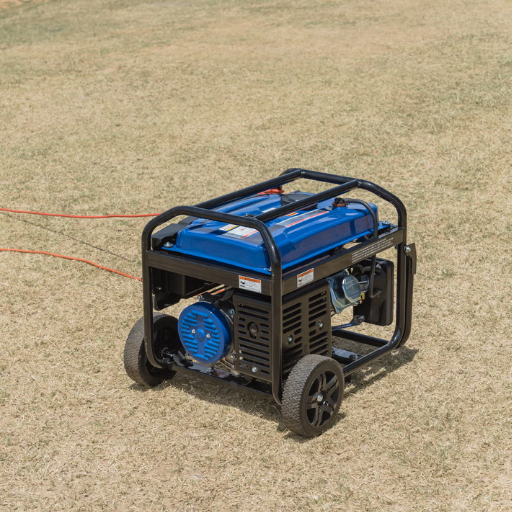
A generator is simply worth buying when you experience frequent power outages or feel the need for reliable backups for critical appliances and devices. It offers the feeling of safety, convenience, and protection against disruptions in emergencies. However, if power outages rarely occur in your area or if your power needs are minimal, alternative cheaper options such as portable solar panels and power banks are probably more suitable. Think about your particular needs, budget, and local circumstances when deciding whether buying a generator is the thing to do.
Summary of Key Points
- Reliable Backup Power: Generators are rock-solid backup power sources to keep life-supporting appliances and gadgets going during the storm. And, of course, they are truly vital during a heavy storm or unplanned outage.
- Variety of Options: There are several types of generators, such as standby and portable. Standby generators automatically supply power in the event of an outage in your home. Portable generators can be operated manually and are more flexible and inexpensive.
- Power Output and Usage: The wattage rating of a generator is important to meet your energy requirements. In normal use, a portable generator will produce roughly 3,000 to 8,000 watts, enough to simultaneously power a refrigerator, heater, and a few lights for the house. Standby generators, on the other hand, are usually from 10,000 watts and higher, so the option is selected based on whole-home requirements.
- Fuel Sources: Generators generally run on gasoline, propane, or diesel. Gasoline can be found anywhere, although it poses some storage problems. Propane burns cleaner, but it must have a storage tank. Diesel generators are generally more fuel-efficient but louder.
- Costs: Costs vary and depend on type, size, and features. Portable generators generally range from $500 to $2,500, while standby ones go for between $5,000 and $10,000 plus installation. Maintenance costs should be taken into account as well.
- Consideration of Alternative Solutions: If energy needs are low or outages are few and far between, a high-capacity power bank, UPS, or solar panel kit might present just alternative that fits the bill with respect to pricing.
Having the knowledge of your energy demands, local power grid situation, in conjunction with your budget, will allow you to make an informed decision as to whether or not employing a generator would be under your circumstances or whether an alternative solution can be a better option for you under your circumstances.
Making an Informed Decision
While weighing a generator against some alternative, first look at what options are available for each and what each costs. Standby generators, permanently installed and automatically energized during an outage, are generally anywhere between $2,000 $10,000, installation not included. Portable generators, secondly, work out cheaper-with a range between $300 and $1,200-but must be set up and fueled manually.
Also at hand are considerations of running expenses. These might run about another $20 to $50 of natural gas or propane for each generator run day for a standby, while 12 to 20 gallons of gasoline could be consumed by a portable generator per day, depending on ratings and power consumption.
Other aspects of compliance should be weighed too, such as local noise and environmental standards. In some neighborhoods, quiet models or noise reduction treatments might be necessary, while certain areas do impose emission limitations that would have to be adhered to. Checking the total cost of ownership, including purchase, installation, fuel, maintenance, and retrofitting needs for noise and emissions, will help you achieve what is within budget and local jurisdiction.
This kind of comparison of generator capabilities versus prices of alternative solutions like power banks or solar kits will have you rightly weighing your choice against your power requirements, outage frequency, and financial considerations.
Final Thoughts on Home Backup Generators
Understanding the important features along with the latest developments will help you shortlist your options for a home backup generator. Generally, a generator is rated by its wattage: small portable units will provide anything from 2,000 to 5,000 watts, whereas stationary generators will provide over 20,000 watts to run an entire home. Then there is the issue of the types of fuel, which might determine convenience and efficiency. Each fuel presents its advantages: propane, natural gas, or diesel. Advances have made inverter generators more popular because they are quieter and produce stable and clean energy, which is suitable for sensitive electronics.
Further, generator costs do not stop at the purchase. Installation of standby units runs anywhere from $3,000 to $6,000 and depends upon complexity. Maintenance forms another consideration-maintaining your generator usually costs between $200 and $400 a year-and that assures the system really does work when there is an outage. For green enthusiasts, hybrid-type units marry generator power with solar power to reduce fuel use over time and environmental impact. Taking all these items into consideration will allow homeowners to weigh the options and make a well-informed decision as to what best suits their backup power system needs.
Reference Sources
-
Generator Selection, Sizing, and Operation – University of Alaska Fairbanks
This resource discusses the benefits of having a generator for sudden outages or outdoor activities, providing practical insights. -
The Difference Between Prime Power and Standby Power – University of Texas Arlington
A detailed explanation of different generator types and their appropriate use cases, helping assess their value. -
New Technologies Make Whole Home Power Backup Safer – National Weather Service
This document highlights the advantages and disadvantages of generators, including safety considerations and modern advancements.
Frequently Asked Questions (FAQs)
Are power generators worth the investment for a whole house?
Power generators can be a worthwhile investment for a whole house, especially if you experience frequent power outages. Whole house generators provide a reliable backup power solution that can keep essential appliances running, ensuring your home remains functional and comfortable during outages.
What are the benefits of having a backup generator for home use?
Having a backup generator is worth the cost as it provides peace of mind. It keeps your home powered during outages, allowing you to maintain daily routines, work from home, and protect your appliances from damage due to power fluctuations. Moreover, it can provide significant value during extended power outages.
How do I determine the right generator for my specific power needs?
To find the right generator for your specific power needs, you should assess the total wattage required by the appliances you want to run. Consider their starting and running wattage, and choose a generator that meets or exceeds this power capacity. Using generator ratings can help you make an informed choice.
Are portable power stations a viable alternative to traditional generators?
Unlike portable generators, portable power stations are quieter and more environmentally friendly. However, they typically have less power capacity and may not be suitable for running large appliances. If you need power for extended periods, a traditional generator may be a better option.
What are the costs associated with purchasing a generator?
The price of a generator can vary widely based on its type, capacity, and brand. Portable generators are generally less expensive than whole-house generators or permanent standby generators. When considering the cost, also factor in installation and maintenance expenses to get a complete picture of your investment.
Can I connect the generator to my home for backup power during outages?
Yes, you can connect the generator to your home to provide backup power during outages. This usually requires a transfer switch that ensures safe operation and prevents backfeeding into the grid. It’s vital to follow safety guidelines and consult with a professional for proper installation.
What maintenance do generators require to keep them running efficiently?
Generators require regular maintenance to ensure they operate efficiently. This includes checking oil levels, replacing filters, and testing the battery. Keeping the generator clean and performing routine generator testing can help extend its lifespan and reliability during power outages.
How do portable generators differ from whole-house generators?
Portable generators require manual setup and are typically smaller, making them suitable for temporary power needs, such as camping or short-term outages. In contrast, whole-house generators are permanently installed and can automatically provide power during outages, making them more convenient for homeowners.
Are home backup generators worth the cost for small families?
Home backup generators can be worth the cost for small families, particularly if they rely on electricity for essential functions. Even during brief outages, having backup power ensures that your home remains comfortable and functional, making it a valuable investment for many households.
